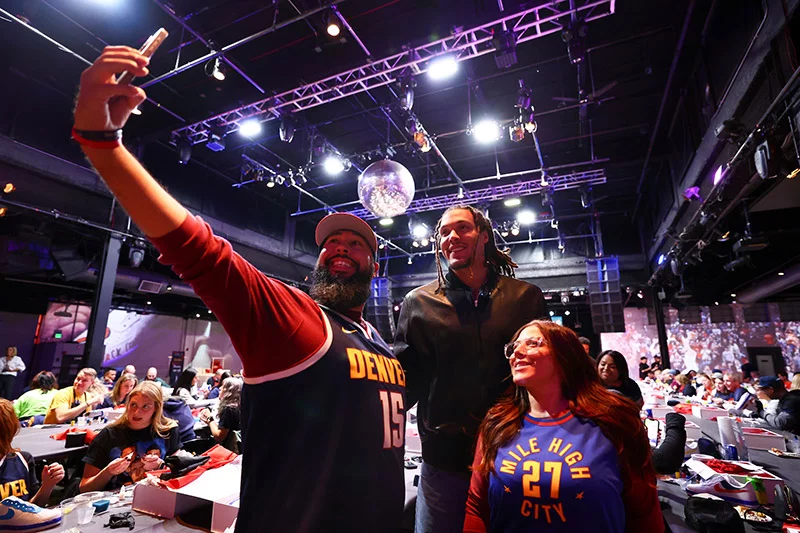
More than 200 sports fans gathered on a recent evening to hear the thoughts of a wise, tall man, a philosopher of sorts.
“To be creative is to be human. And when you are creating, and when you are human, you connect, and it brings you back to the earth,” the man said. “I can be myself. I can be Aaron.”
This Aaron, it turns out, is Aaron Gordon, the 6’8”, 235-pound Denver Nuggets power forward who had dropped 20 points and bullied the boards for 11 rebounds in a win against the Sacramento Kings at Ball Arena the night before.
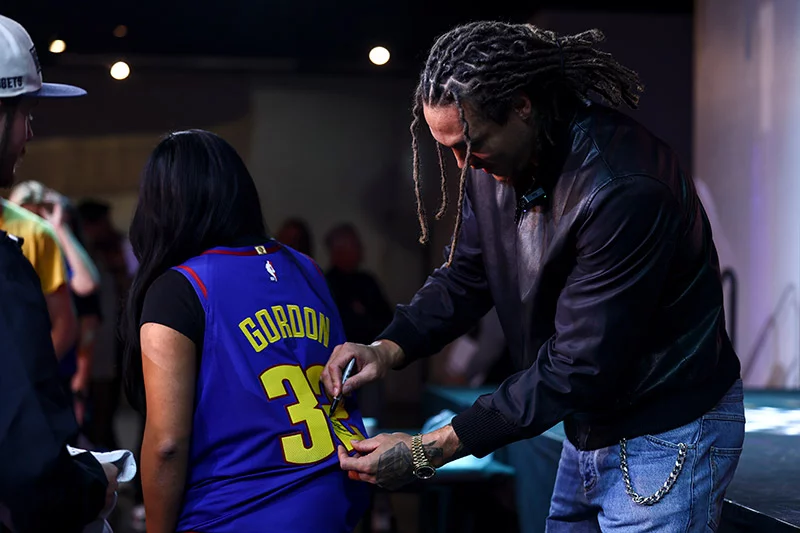
Now he was headlining the third edition of Soleful Connections, presented by UCHealth and the Denver Nuggets. His size-17s followed in the Soleful footsteps of Nuggets predecessors DeAndre Jordan (size 18) and Christian Braun (size 13).
The Nov. 4 event brought in 100 pairs of people — chosen by lottery from 5,400 entrants — to ReelWorks Denver. They spent the evening snacking on appetizers, listening to a brief panel discussion on the therapeutic benefits of art led by Altitude Sports host Vic Lombardi, and, most importantly, creating art of their own on 100 pairs of shoes.
Marcus Jimenez’s team from Denver’s Sicario Studios again provided the white Nike Air Force 1 Low By You sneakers and art supplies from paint to heat guns to splatter boxes. Each participant had a shoe to paint and ink up as they fancied.
“It’s not what you’re painting,” Jimenez told them. “It’s that you’re painting.”
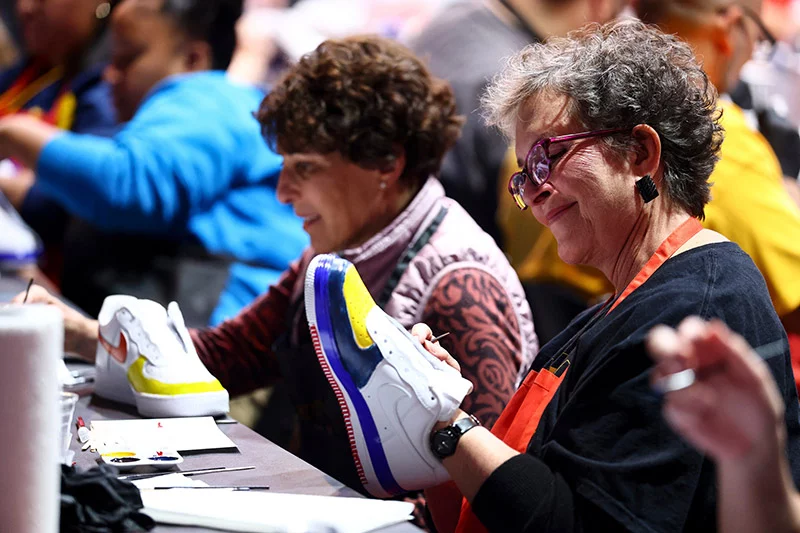
Aaron Gordon: Go for the flow
And paint they did. As the Denver Nuggets DJ spun high-energy tunes through the venue’s formidable sound system, as loops of hoops highlights splashed across white walls, as Rocky the Nuggets mascot and, later, Gordon himself made the rounds, chatting, joining selfies, signing jerseys/hats/shoes, they painted and painted. Many had immersed themselves in what they were doing to the point that they seemed oblivious to the presence of the celebrity walking among them. That’s the whole point, Jimenez says.
“There’s a connection between the state of flow that creativity gives you — in this case, that brush, those bristles — and the release of subconscious pressure,” he said.
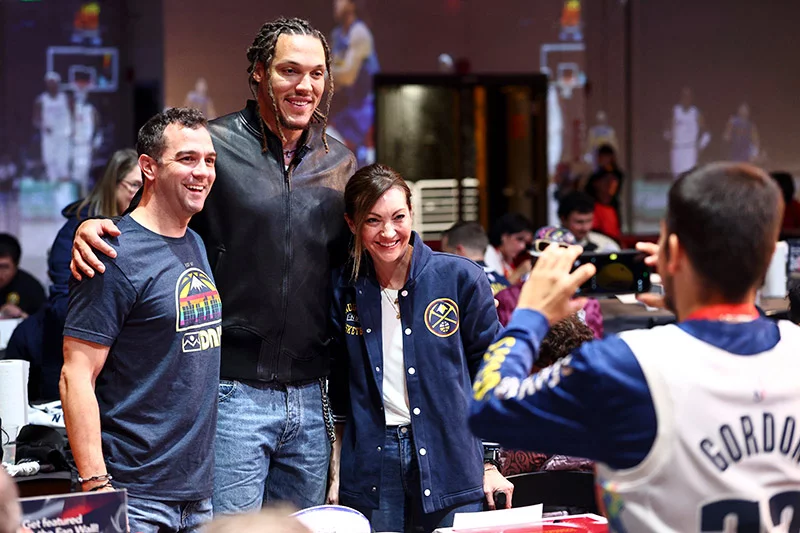
Among those flowing along were Rachel and Sean Lee-Nakamoto of Lakewood, both attorneys by trade. Rachel wore a Gordon #32 jersey and declared him to be her favorite player. She painted a rendition of her cat Frida on the leather upper just above the sole’s rim (taped blue for paint-protection by the Sicario Studios team) as if Frida were peeking over it. Rachel knits and paints at home, she said.
“With my high-stress job, it’s good to have a creative outlet,” she said. “It’s good to do something with your hands.”
Sarah Clough of Englewood had surprised Emily Romo of Centennial with the invite.
“I’m trying to find more stuff to do — more art,” Clough said. “You get out of your comfort zone and create something you’re excited about.”
Romo has been making a point of painting a couple of times a month, she said.
“It’s definitely therapeutic, and, if it’s with someone else, it’s fun to compare results,” Romo said.
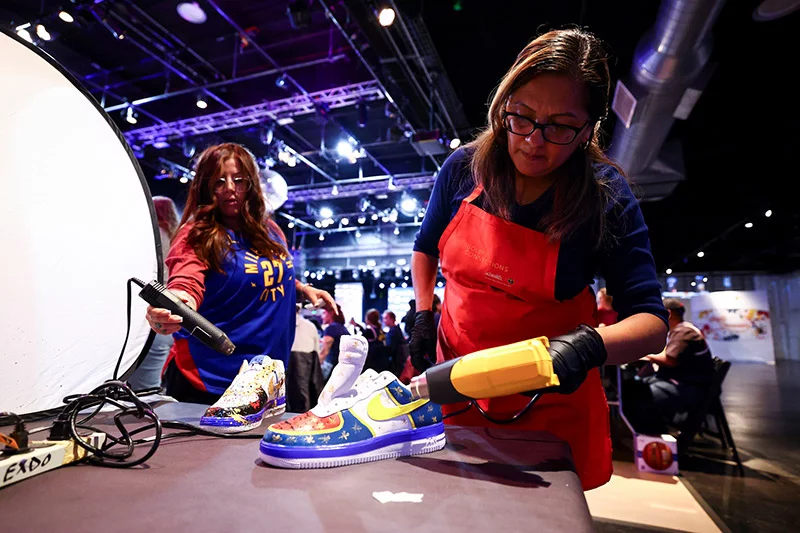
The numbers don’t lie: Art is good for mental well-being
Dr. Marc Moss agrees, and he has the data to back it up. Moss is a University of Colorado School of Medicine professor of pulmonary sciences and critical care medicine who treats intensive care unit patients at UCHealth University of Colorado Hospital at University of Colorado Anschutz. He and his colleagues’ studies on the stresses of ICU work and consequences ranging from burnout to post-traumatic stress disorder led to the creation of the Colorado Resiliency Arts Lab, or CORAL.
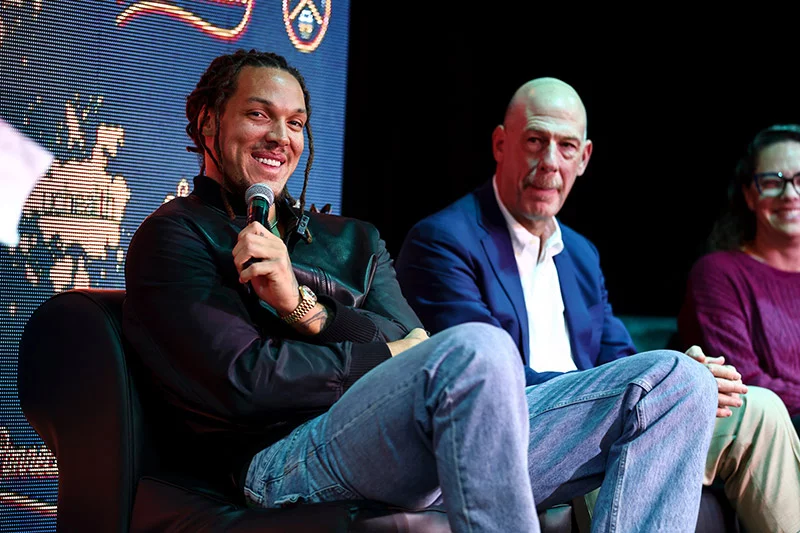
The National Endowment for the Arts-funded program combines visual arts, dance, musical, and written-expression therapies and techniques to help providers navigate their own holistic health. It deliberately brings people together to do these activities, creating community during 12 weeks of weekly in-person sessions.
A study Moss’s team published in December 2023 found that ICU workers who received creative arts therapy saw a 28% drop in anxiety, a 36% drop in depression, a 26% drop in PTSD, and a 12% drop in emotional exhaustion compared to a control group who didn’t participate. Some of these improvements persisted for 12 months after the therapy sessions ended.
A second study published in April 2025 extended the work to nonpatient-facing healthcare workers such as researchers, administrators, educators, and support staff. It found a 41% reduction in anxiety, a 29% drop in depression, a 15% drop in emotional exhaustion, and 6% drop in turnover intention compared to the control group. These improvements persisted for a year afterward, Moss says.
“What’s interesting is that the stressors that people talked about were different. For example, the stressors in the hospital were dealing with tragedy, with people dying, et cetera,” he said. “The stresses for people who are administrators are, there’s a lot of pressure on me to balance the budget and make money and make good decisions. With researchers, there’s a lot of stress now around job security and getting grants. So, the issues were different, but the effects of the intervention on people, even with different issues, were similarly significant.”
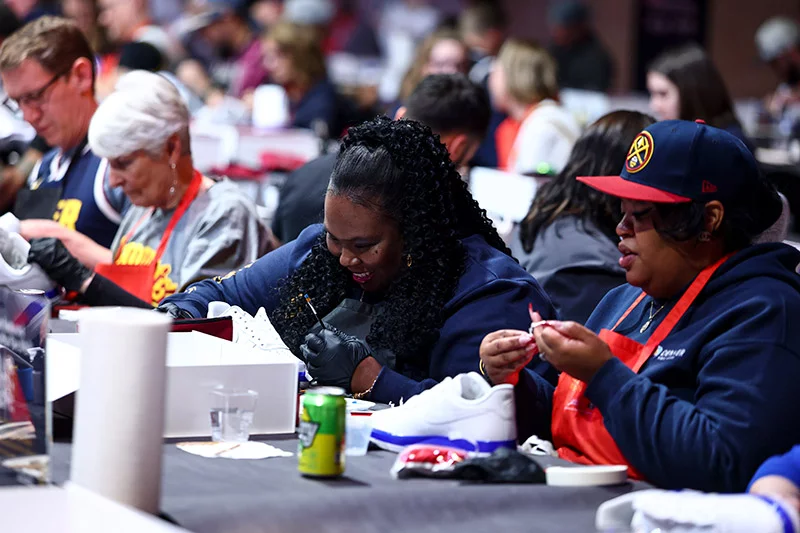
Next up for CORAL is a study of art’s effect on medical trainees
CORAL is now preparing a third National Endowment for the Arts-funded study, this one focusing on creative arts therapy’s impact on medical, dental, pharmacy, nursing, physician-associate, physical-therapy, and other students. It’s slated to launch in early 2026. Beyond understanding the impact of art therapy on a generally younger cohort, the idea is to help future medical professionals incorporate art into their lives early, Moss says.
“If we work with trainees, can we give them these skill sets before they develop problems — as opposed to treating issues?” Moss said.
For Aaron Gordon, work is not a stressor, he says. Quite the opposite, actually.
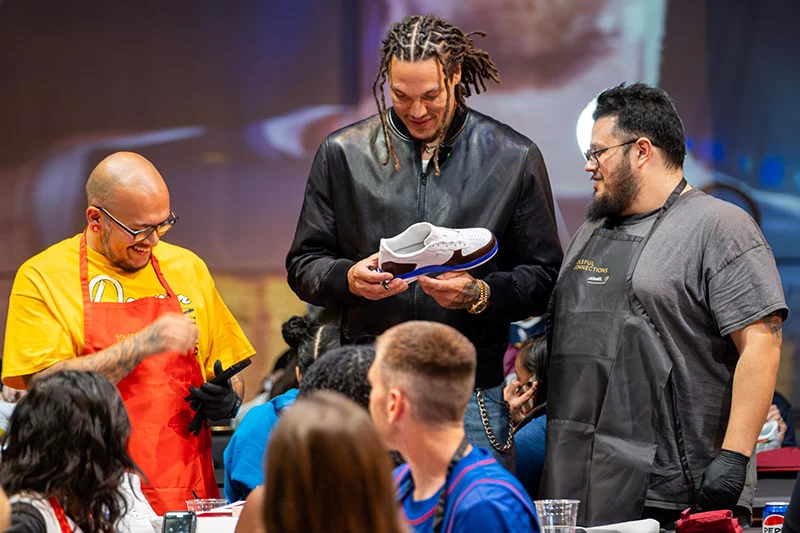
“I am fortunate enough to have an occupation that intersects with creativity and artistry,” he said. “I really think the game of basketball is beautiful. I think it’s poetry in motion, so I get to express myself every day through my job, and I feel really fortunate for that. That’s where I get to just completely let my creativity flourish.”
But Gordon said he recognizes that art in its various forms can provide an important outlet for those “not able to express the anger, the frustration, the sadness, the despair, the depression, the joy, the gratefulness, the hopefulness — this cocktail of emotions that can be alleviated through catharsis and through creativity and artistry.”
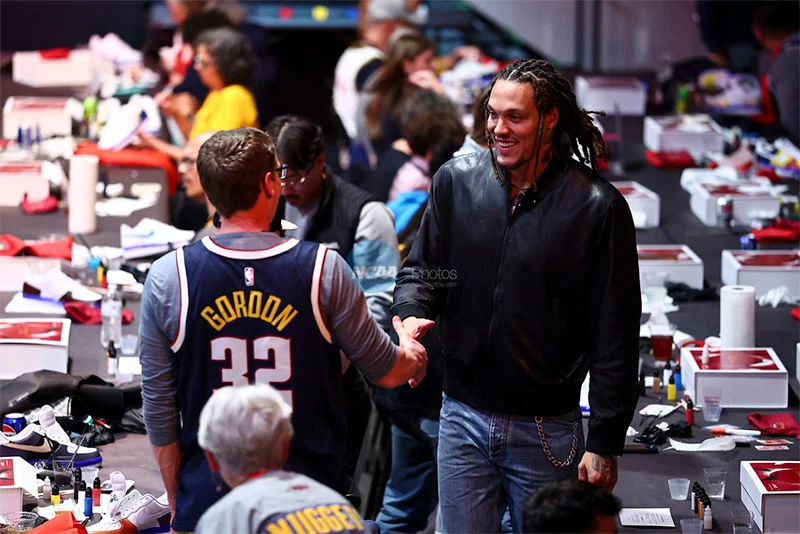
The philosophically attuned basketball star’s creativity and artistry would be on display again the following night against the Miami Heat, and, if the Nuggets’ season goes as hoped, will feature in dozens of games on through the NBA Finals next summer. For those of us who must find artistic flow states beyond the workplace, Moss’s research shows that health care professionals — and, probably, the rest of us — have much to gain by seeking flow through our own creative outlets.
